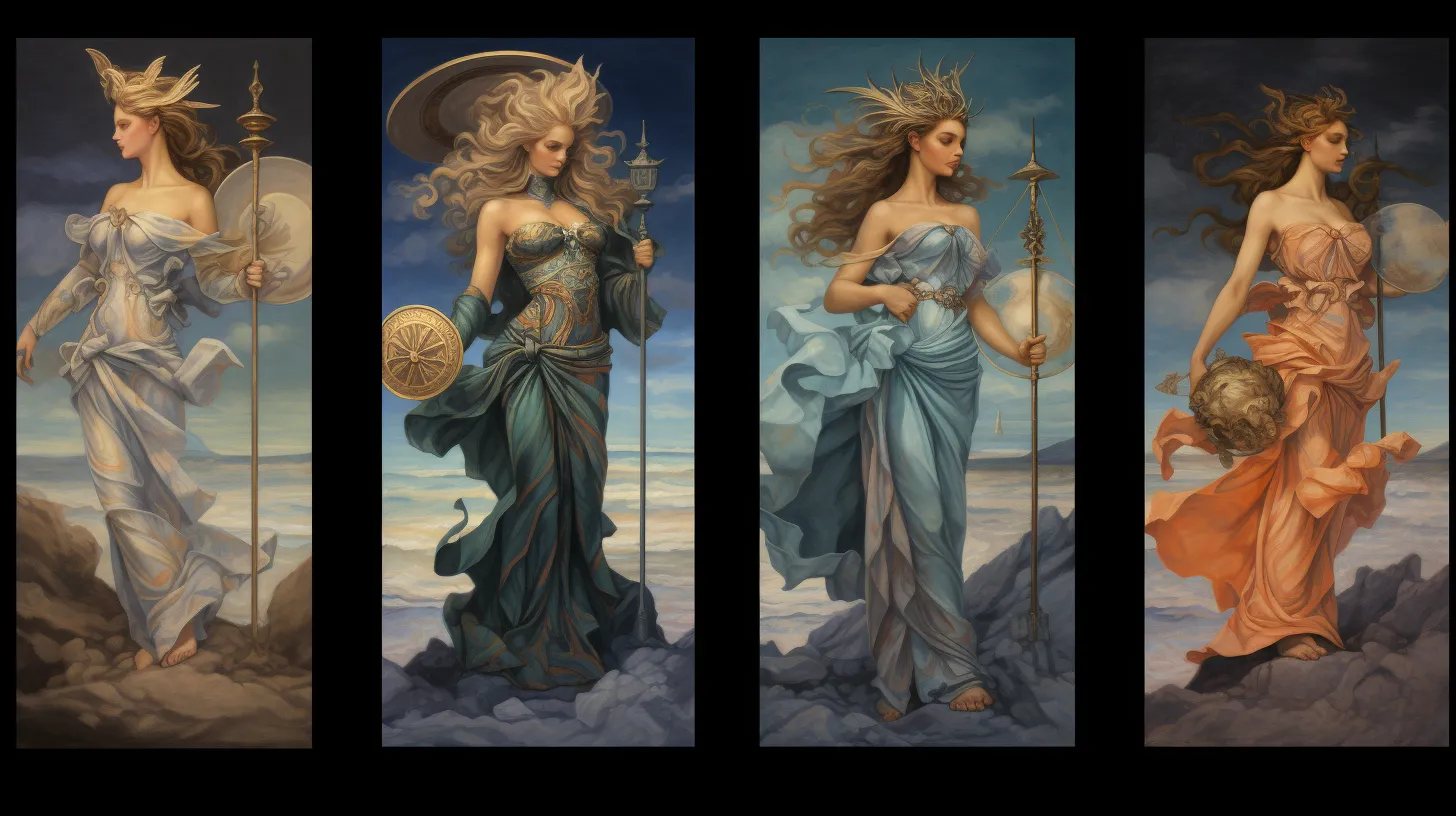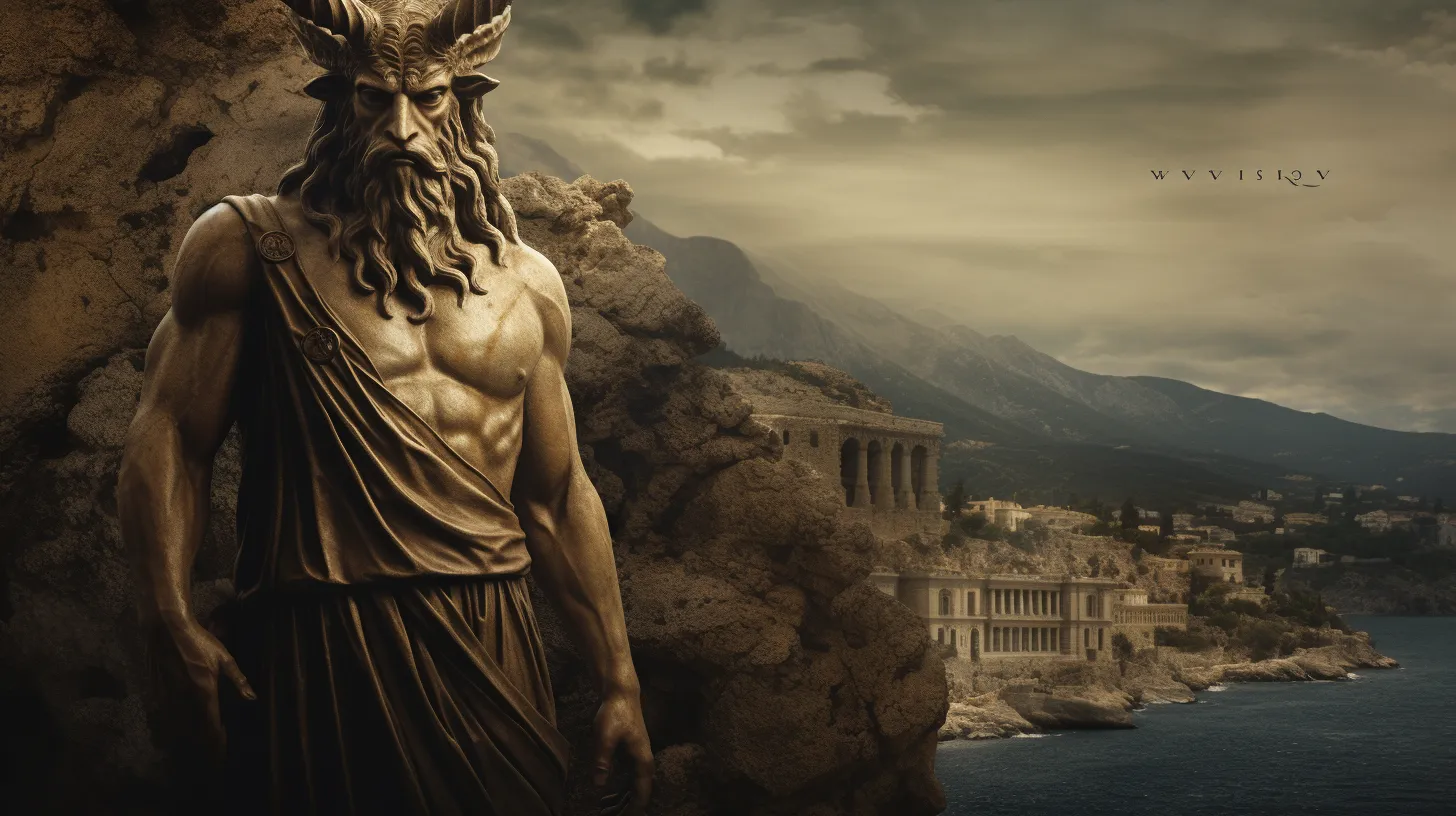Many people might think that Roman mythology is just a replica of Greek mythology with different names for the same gods.
However, if you study the details, you’ll notice key differences that set these two mythological worlds apart.
Greek mythology is known for its unpredictable gods and their human-like flaws, illustrating a universe filled with spontaneity and drama.
On the other hand, Roman mythology places these mythical beings into a context that mirrors their cultural emphasis on structure and the collective good.
While Greek tales are often filled with the unpredictable actions of gods and the destinies of humans, Roman stories frequently act as narratives that promote the morals esteemed by the Roman Empire.
By understanding these distinctions, we can better grasp how both mythologies have left lasting marks on the worlds of art, literature, and cultural norms throughout the ages.
‘Appreciating the distinct characteristics of Greek and Roman myths opens a window into the ancient world, revealing the values and beliefs that sculpted Western civilization.’
Origins and Development
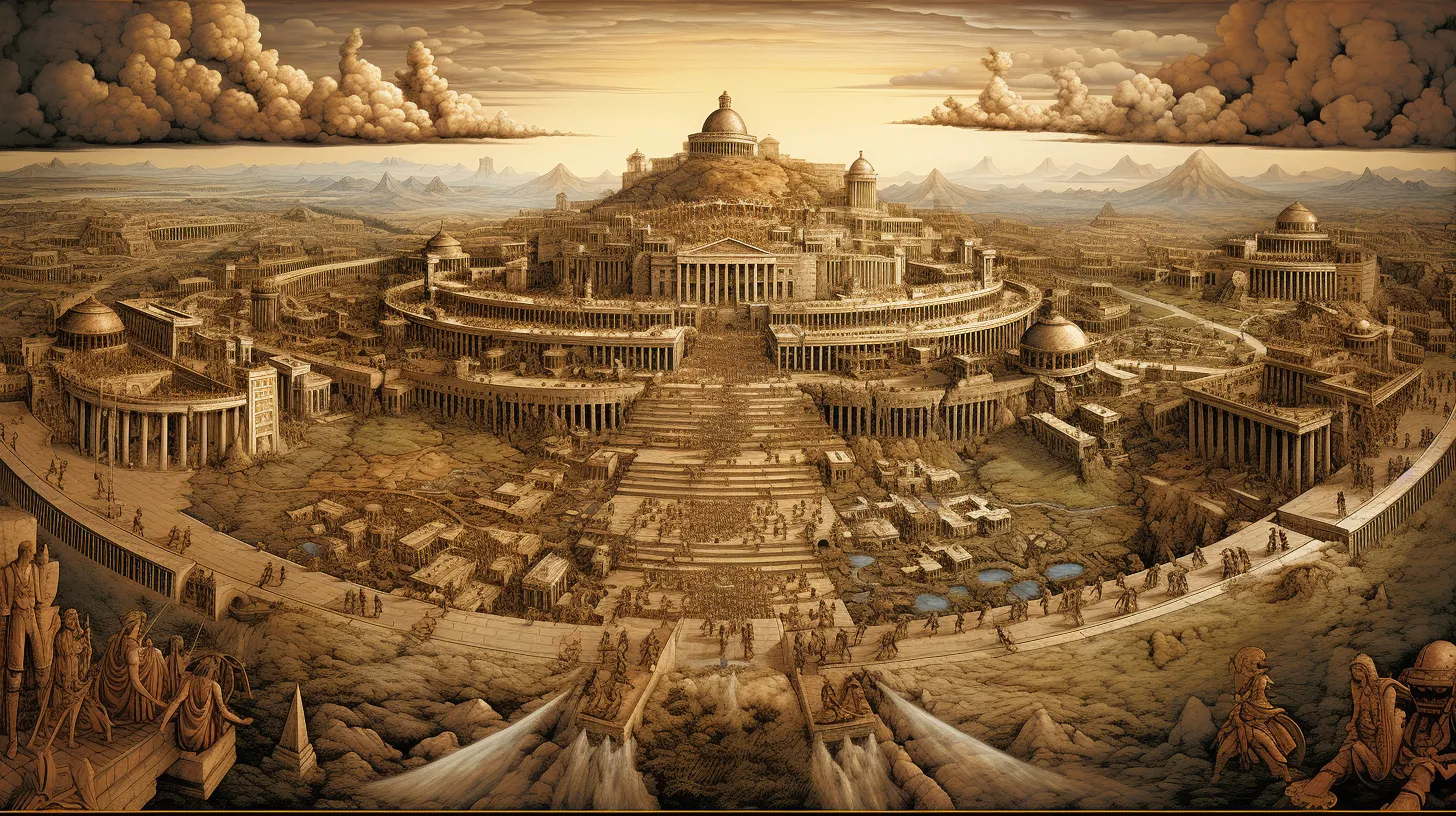
Why should you consider the historical context when exploring the divergent paths of Greek and Roman mythology’s origins and development?
Understanding that Greek mythology predates Roman mythology by a millennium is crucial. It’s a testament to how Greek culture laid the groundwork for the narrative structure that Roman civilization later borrowed from.
Romans often embraced these narratives, reinterpreting them to fit their own ethos, thus creating a Roman counterpart for many Greek gods. The difference between Greek gods and their Roman equivalents lies not just in names but in the nuanced interpretation of their powers and domains.
Greek and Roman mythology, although sharing sets of deities, reflect different cultures and ideals, a distinction that’s paramount for you, the discerning reader seeking a grasp of the profound legacy left by these ancient civilizations.
Pantheon and Deities
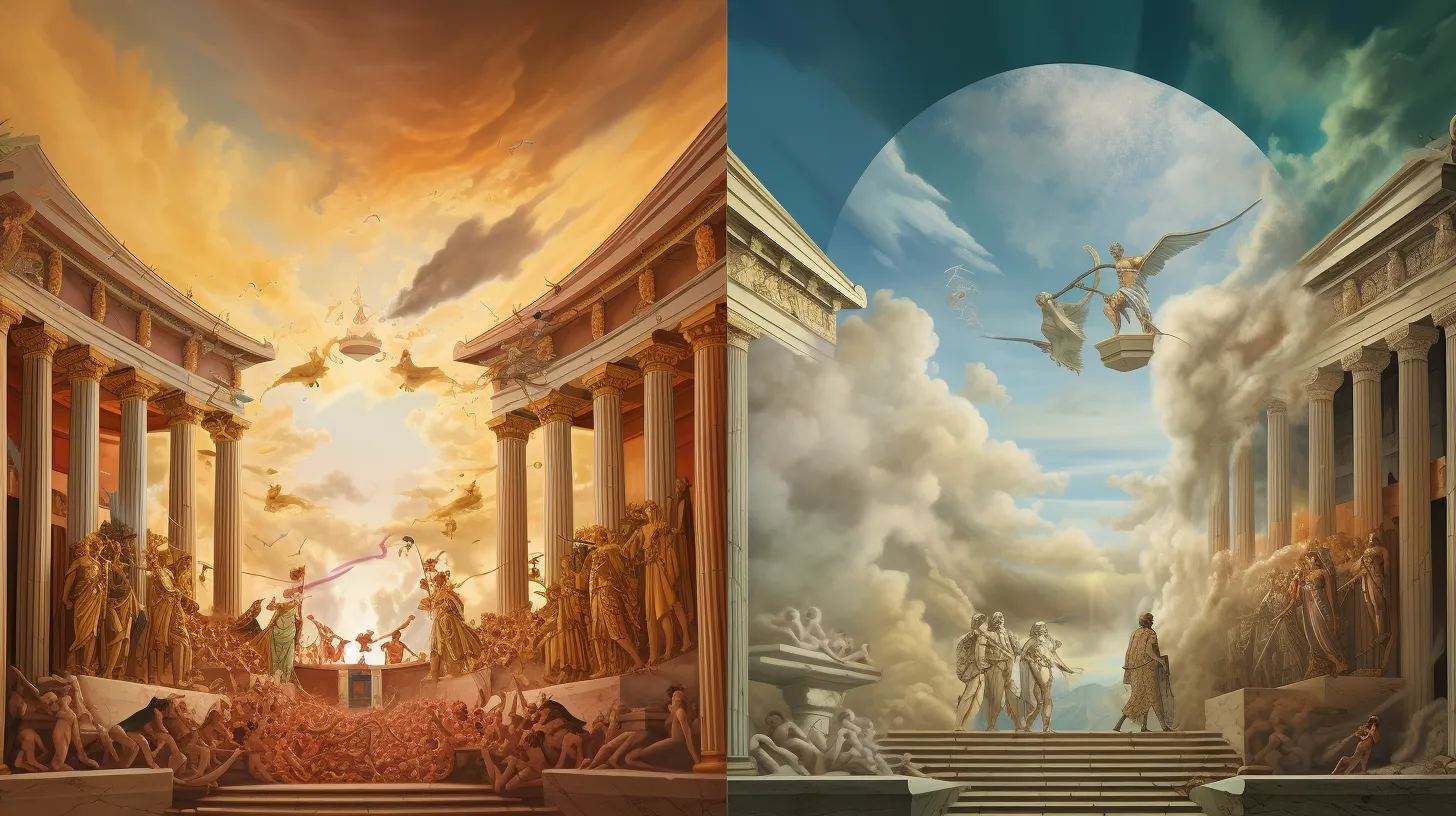
You’ll notice the Greek and Roman pantheons are similar, yet they display distinct deities with unique attributes and stories.
Greek mythology predates Roman mythology significantly, with the Greek pantheon serving as the blueprint. The Romans, mastering the art of cultural adaptation, absorbed the Greek gods, bestowing upon them different names while integrating them into their own Roman pantheon.
For instance, the Greek goddess Athena, renowned as the goddess of war and wisdom, was revered in Rome as the Roman goddess Minerva. Similarly, the Greek god of war, Ares, found a counterpart in Mars.
This clever fusion created a robust pantheon of gods, where each deity commanded respect and embodied specific domains of influence, reflecting the desires of an empire yearning for control and order.
Mythological Narratives
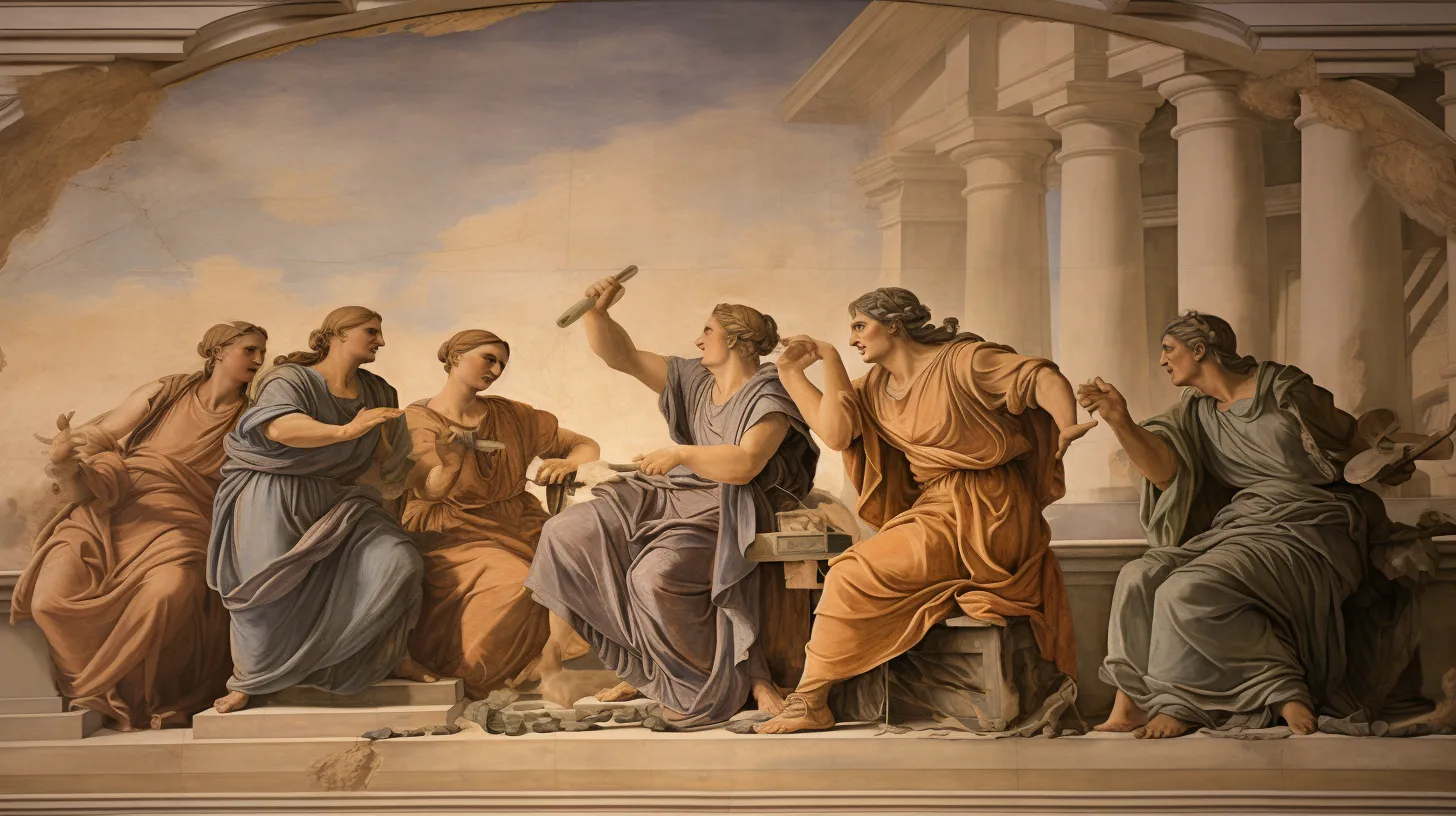
Diving into mythological narratives, you’ll find that Greek epics often focus on heroic quests and the intervention of gods in human affairs, whereas Roman myths tend to highlight moral lessons and the founding of Rome.
Understanding the different flavors of Ancient Greek and Roman storytelling gives you an edge in grasping how Greek mythology predates Roman mythology, shaping its evolution. The Iliad and The Odyssey are cornerstones of Greek lore, featuring the grandeur of Mount Olympus and showcasing Greek Gods vs Roman Gods in a light where the former exhibit more pronounced human characteristics.
In contrast, Roman mythology, while absorbing elements from its Greek predecessor, carves its own identity, emphasizing virtues that built a civilization.
This distinction in mythological narratives between the deities of both cultures reflects your command over their rich legacies.
Cultural Influences
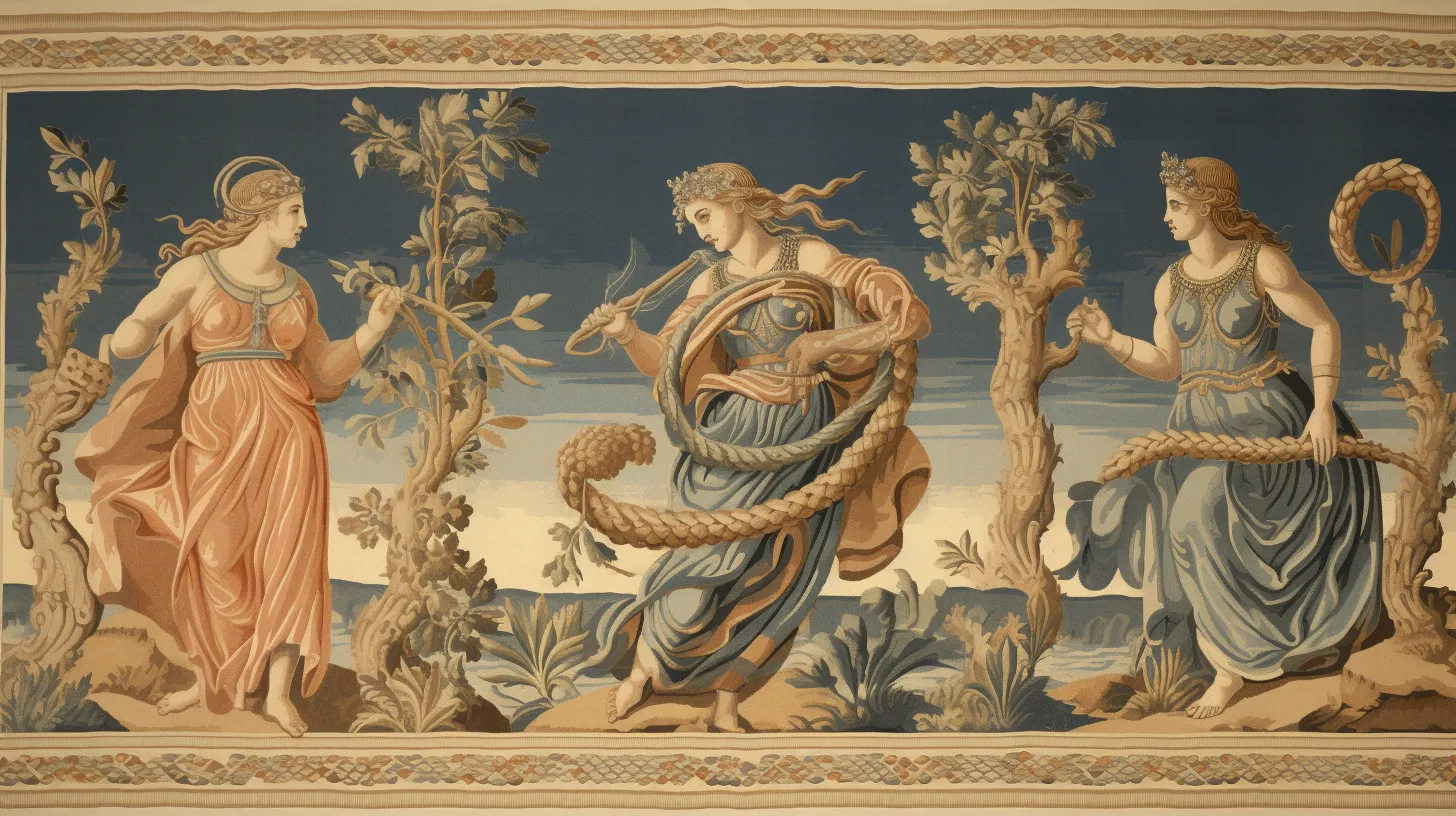
Amid the cultural exchange between Greece and Rome, you’ll notice how the Greek pantheon’s attributes were tailored to suit Roman societal values and ideals. Greek mythology predates Roman, yet the latter absorbed the former with a pragmatic approach. Greek Gods vs. Roman deities became less about the whims of fate and more aligned with the Roman ethos of control and empire-building.
Romans were more interested in the utilitarian aspects of religion. They revered Greek heroes but modified the narratives to inspire civic duty. Cultural influences from Greek deity archetypes were adapted; the goddess of the hunt, for example, evolved to meet Roman virtues.
The deities of ancient Rome thus became unique embodiments of a civilization striving for greatness through the lens of borrowed mythology.
Mortal Interaction
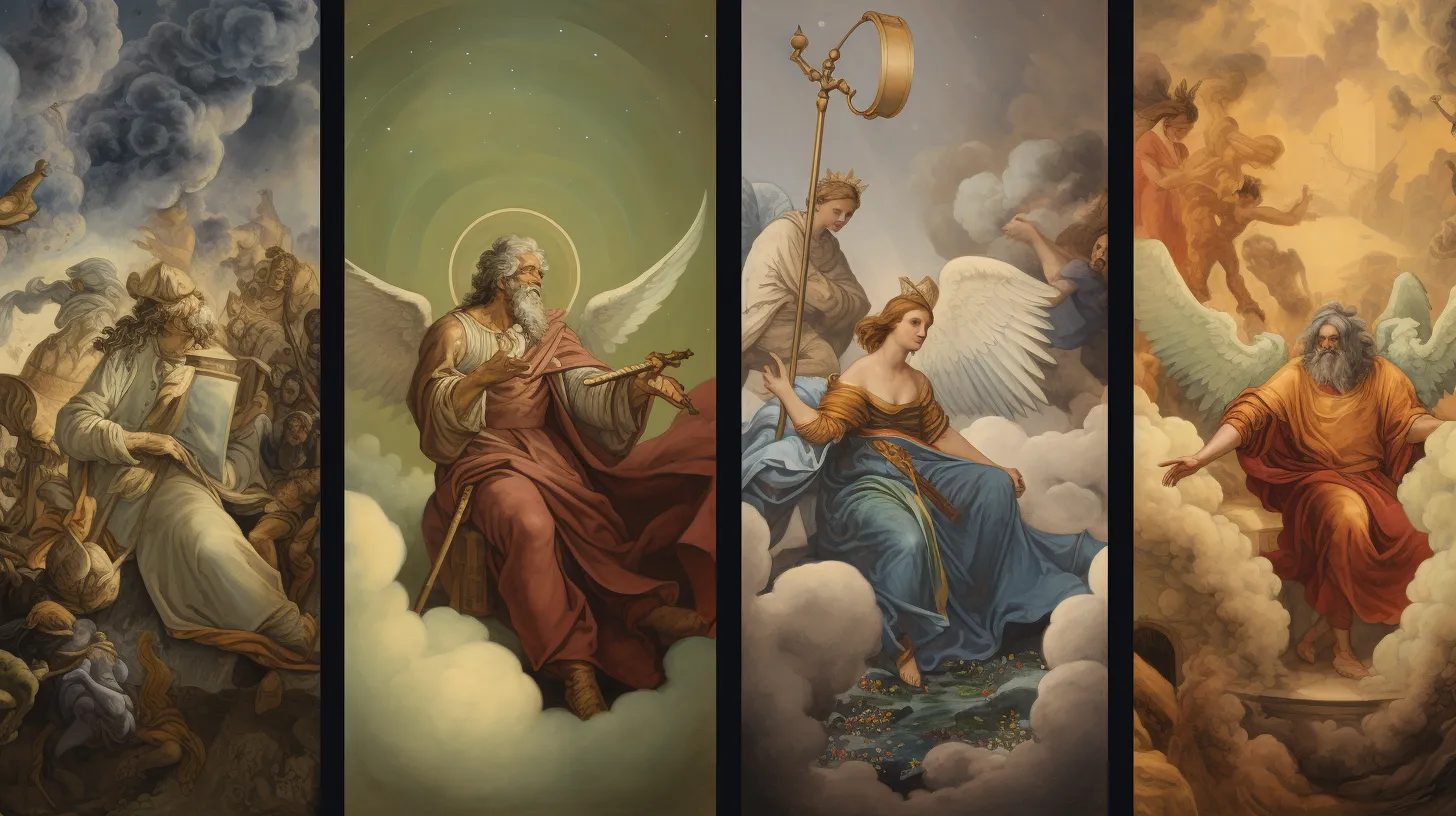
In exploring mortal interaction within mythology, you’ll find that Greek gods often meddled directly in human affairs, while Roman deities served more as moral exemplars. Here’s a glimpse into the disparities:
-
Greek mythology depicts gods and goddesses like the Greek God Poseidon who decisively influenced the Trojan War, demonstrating a hands-on approach to mortal interaction.
-
Roman mythology, however, elevates good deeds and moral living, with the Goddess of Love inspiring love and virtue rather than engaging in the minutiae of life on earth.
-
While Greeks saw their deities as omnipotent beings with personal stakes in human lives, Romans sought to emulate their gods, aspiring to celestial heights through earthly conduct.
Embrace this understanding, and you’ll command the essence of divine and mortal interplay in ancient tales.

